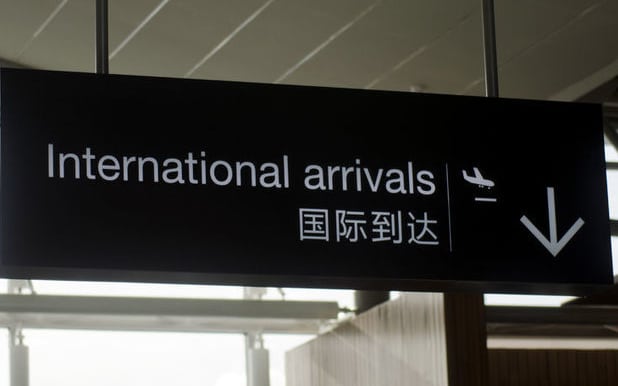Immigration officials are being warned there'll be more overstayers if the department goes ahead with its decision to close all public counters and make people apply for visas online.

Photo: RNZ
Advisors and lawyers doubt the technology is in place to cope and the Minister for Pacific Peoples wants the move reviewed. But Immigration NZ says people can still see an immigration officer by appointment, and put in a paper application.
Since the beginning of last year, Immigration NZ has closed its public counters in Henderson, Manukau, Hamilton and Palmerston North.
Wellington's office will shut in 10 days and Christchurch's on 21 December. The remaining one, at the Auckland Queen Street office, is due to shut by June.
The department said people used the public counters to get forms, drop in applications and check on progress, and instead it wants them to apply online or phone the call centre.
Wellington immigration lawyer Richard Small said that only helped those immigrants who knew they had the right documents or could pay someone to check for them.
"For vulnerable groups and particularly for Pasifika people, that is not a given. And the sponsors who are mainly helping these people, or the employers - small employers - don't have the time to expertly check every document," he said.
Tongan Advisory Council chair Melino Maka was upset his group hadn't been consulted and he couldn't understand the department's actions, given that its job was to serve the public.
"Most of the Tongan and Pacific community are not familiar with filling the application online and most of them don't have a computer. I think that will lead to people who will just break the law," he said.
Mangere MP and new Minister for Pacific Peoples, Aupito William Sio, said the Manukau office closure in July led to delays that ended with some people classified as overstayers.
"It meant people had to travel into areas that they were not familiar with. It also took a bit of time for them to find the appropriate office.
"By the time they entered their visa applications and by the time the officials returned the responses to the applications, some of the applicants were deemed to be illegal."
Mr Maka and Mr Sio had both written to Immigration Minister Iain Lees Galloway, asking him to review the decision.
Online system 'cheaper, quicker'
Immigration's director of operations for visa services Peter Elms said the system still allowed for applications on paper.
"There's no intent to completely get rid of paper applications."
"In those very rare occasions where you do need to see an immigration officer for some guidance and for some support then you can still make appointments."
"People who do need to see an immigration officer, can see an immigration officer. You ring up the contact centre and the contact centre will make an appointment for people at their local office."
"The online technology we've got is simple to use, it's cheaper and it's quicker."
From May next year technology for family or group applications will be available.
'It can be seen as quite a dangerous situation'
New Zealand Association for Migration and Investment chair June Ranson said the closures could prove expensive for people who had to use a courier to put in last-minute applications.
"It can be seen as quite a dangerous situation for the applicants who have been waiting to get their own personal documents lodged and they find rather at the last minute that they need to get an application in and they can't, because they've got to use a courier system.
"Immigration used to have ... drop boxes at the various offices, and that's going to be taken away, so they've got to rely on couriers."
Immigration NZ is also proposing to close 12 of its 17 overseas visa processing centres to bring most of the work back to New Zealand, saving more than $20 million a year.
Ms Ranson said immigration lawyers and advisors could understand the logic behind the proposal but were yet to see the technology working successfully.
Whlie some services were already online, it was very limited and unreliable, she said.
"We've had huge glitches.
"There was a mammoth one about two months ago and everything was sort of blocked off.
The department shouldn't be putting in a system until it had been well tested. "And they should in fact be practising it, not with just their own internal people, they should in fact use the practitioners themselves," she said.
"Technology always has glitches," Mr Elms said. "The odd problem we've had with technology has been nothing compared to the value we've derived from it."
Immigration NZ had invested $130m in technology and would continue to improve it.
Reducing the 17 overseas offices to five would bring savings, he said. "Because of technology we can process applications anywhere in the world so why wouldn't we bring more processing into New Zealand and employ more New Zealanders doing immigration work."
A decision on the proposal is due by the end of the year. The department said it was an operational matter, but the new immigration minister Iain Lees-Galloway has asked officials for more information.






